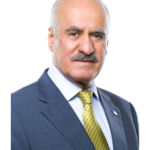High-level panel II: Ending Energy Poverty – Concrete Commitments and Action on the Ground
This session will focus on key challenges in achieving universal access to modern energy and discuss enabling factors, as well as concrete strategies required to end energy poverty globally.
The last decade has witnessed significant progress towards combating energy poverty but the challenge remains, especially in view of continuing population growth. Today, approximately 1.2 billion people – almost one fifth of the world’s population – live without the access to electricity needed for day-to-day activities and survival; worldwide, 2.8 billion people still rely on traditional energy sources for cooking and boiling water. Since women and girls bear the primary responsibility for fetching firewood, cooking and other domestic work, they are disproportionately affected by energy poverty across developing countries.
As we stepped into the Decade of Sustainable Energy for All (SE4All), the international community has committed to achieving universal access to modern energy by 2030, recognizing the importance of eradicating energy poverty for achieving inclusive and sustainable development. Access to modern energy is not only seen as central to resolving today’s most pressing challenges, especially with regard to economic growth and improving human wellbeing, but is also a justice and human rights issue. Ending energy poverty is feasible but nonetheless challenging; therefore, attention must shift to transforming targets and statements into concrete actions through sustained, concerted, and decisive actions by the entire international community. To achieve this, adequate, innovative and affordable solutions are needed, whether on- or off-grid, for Small Island Developing States (SIDS) or rural communities, requiring the involvement of both the private and public sectors.
In particular, panellists will critically discuss the policies and partnerships needed to meet internationally agreed targets; factors that can be influenced to reduce the funding gap; the role of gas, LPG and other modern liquid fuels; the role of civil society and the private sector; and potential opportunities to accelerate international cooperation to overcome extreme energy poverty in the most seriously affected regions.



